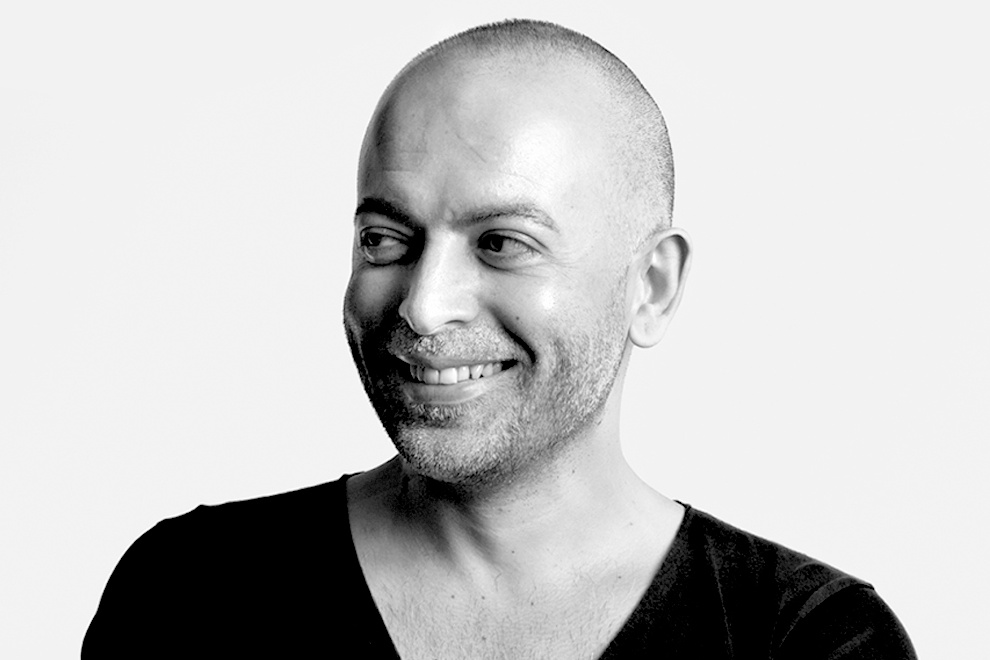Spikes Asia, the region's oldest and most prestigious award for creative advertising, has launched the inaugural Spikes Asia Academy, a three-day (four hours per day) immersive bootcamp called The Next, for young talent taking place September 14-16, 2022 to learn how to future-proof themselves in this new age of creativity.
The programme entails talks and Q&A sessions with new-world industry professionals and will culminate in a project or hackathon where participants have the opportunity to practice the new-world skills they picked up.
A key theme for the inaugural Academy is a focus on advertising intelligence and what is the future for creativity in a world of AI.
One of the key speakers is Laurent Thevenet, head of creative technology at Publicis Groupe for APAC & MEA. Campaign Asia-Pacific spoke with Thevenet ahead of next month's session about the role of creative technologists and AI in future creative work.
Explain your role as a creative technologist.
At the moment I’m running creative technology at Publicis Groupe for Asia Pacific Middle East Africa, part of the creative leadership for Publicis Groupe, working directly with CCO Natalie Lam. The focus is strictly on technology and we work with every single agency brand Publicis has under its umbrella: Leo Burnett, Saatchis and Sapient, etc.
So my role is to figure out if there is a better way to do everything from more traditional creative work to more modern work which involves product design. Creative technology means envisioning possibilities constantly, but not just after an idea has been defined by the creative It really starts from ideation right through to production.
What score would you give the wider creative industry’s—including brands and agencies—track record of using technology to enhance creativity?
Our industry is divided between those who are looking forward and those fighting against some of the changes in the industry and the new media and platforms were are putting our work on. The group against change is getting smaller as we go forward, mainly because we have new generations of talent coming into our agencies.
But how we are doing at large? I think we’re not leading creativity enough as a creative industry. There's a lot of creative novelty that doesn't come from the creative industry. We are seeing a lot of independent artists or content creators who are not linked to agencies. It’s out there, you see it on LinkedIn on YouTube on TikTok, etc. We need to take a bit more of a lead in my opinion and go back to being creative initiators. I see so much envy to do certain types of work. We just need to equip people with the right knowledge or the tools.
We’ve all heard about the need to merge science and art. Yet we still speak of left vs right brain, machine vs human, artist vs engineer. Do we categorise people too much? Are engineers, for instance, way more creative than people give them credit for?
Since I’ve built teams with engineers during my career, I sometimes take engineers whom I know to be very good and functional. I don’t specifically need them to be creative, I just need them to be very logical. But there are also engineers who underestimate their creativity and creatives who understand tech and how things work. Both could be called creative technologists.
So I haven’t had the left brain, right brain conversation much recently. Why? Because I think most work we do for clients is an experience of sorts, no matter if it's a mobile app or social video. We go through a journey starting with a touch screen and there's a lot of logic and function to get to the creative output. We need everyone to think in a logical way as part of their job.
There is more meeting in the middle. Looking at the new generation coming into the market, there are more from universities starting to play at the intersection of disciplines, the Singapore University of Technology and Design, for example. They’re a young university, but they’ll be providing more of our workforce over the next 10 to 20 years. We know that in the future you can’t just be good at one thing.
At next month’s Spikes Academy, you’ll be speaking about the future of creativity in a world of AI. What will AI be able to unlock for the creative industry?
AI is fascinating. I’ve been playing with it for quite a while and what I've noticed is there's a lot of misunderstanding about what AI is able to do. AI is a new generation of algorithms which is going to take care of very commoditised tasks, much like software did. Now, the software is becoming more like a creative partner. We control it to do tasks, it’s not very smart on its own, but it’s also getting progressively easier to use and it inspires us to some degree.
I’ve heard some creatives who are scared of it, thinking it will replace them. This is a misunderstanding because AI at the moment is in no way able to replace anyone in the creative industry. We may have a different conversation in 10 or 20 years as it progresses, but at the moment it needs a lot of direction to get where you want it to go.
What can AI do better than humans to help them in the creative field?
I think what AI can do is analyse and provide suggestions at phenomenal speed compared to a human. The human will need inspiration, go on the internet to create a design that may take days or weeks. AI has the ability to do that in minutes or less. It has this visibility on what’s out there, the different artistic styles, types of scenery, portrayals so you can just get to a result faster.
It’s the same with copywriting. GPT-3 is extremely good at suggesting what I should write next, a bit like the Gmail’s auto completion. So if you write a social post or if you write a script, it has this ability to provide suggestions if you have writer’s block, because it sits on this world of information and has a high percentage chance of leading you somewhere.
What it generates is not yet good enough in my opinion for production. There's still a gap. If we look at the proper creative process where we start with a brief, go through ideation and then execute the work, it’s mainly during the ideation phase where AI can play a role. But over the next two years, we're going to see a lot of work with AI at the center of it or work that uses AI to create XYZ.
There’s been lots of debate in recent months around whether AI can become sentient. If it can become truly empathetic to humans it could change how effective marketing is communicated. Or do you think it’s too far off?
There are two parts to this. The first involves capturing signals from the world around us, analysing and interpreting them. And then there is the reasoning for AI to be able to create results and responses based on these signals.
The signals could come from someone watching a TV commercial and having emotion. This technology already exists, computer vision, that can analyse someone’s face. AI is very functional at this stage and will tell you it’s pretty sure this person is smiling. In this context AI has been trained on perhaps millions of faces to know what each emotion is displayed. It has a database of emotions that it can correlate. But I still don't think it's very smart at this stage.
I read the transcript in the recent story about the Google chatbot which to me looks like an advanced next generation chat system. But sentient to me would involve making its own decisions to go in another direction and disregard comments – more like Stanley Kubrick’s [A Space Odyssey]. I don't think it was there yet.
Is AI bias a pervasive problem since the algorithms are only as unbiased as their programming? Or could AI be used as a way to defeat bias by objectively seeing beyond the biases humans hold?
The reality is that AI bias is, like you say, largely based on the programming. Where AI has been exposed as being biased, like not being able to recognize people of some ethnicities, for example, as much as others are like that because they were trained the wrong way. They didn’t have enough in their data set to represent every single individual out there, so the bias was by design.
But there are tech companies in this space trying to use artificial intelligence to prevent bias, for instance when the banks decide who to give a loan to. For AI to resolve bias it has to be trained, or be part of the design of the AI algorithm. We’ve seen improvements in voice recognition already to be able to detect accents beyond American English. So we need to do the same for the rest of the AI algorithms out there.
This interview has beed edited for brevity and clarity.









